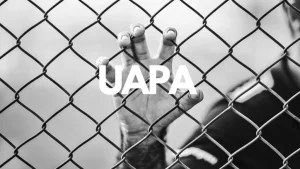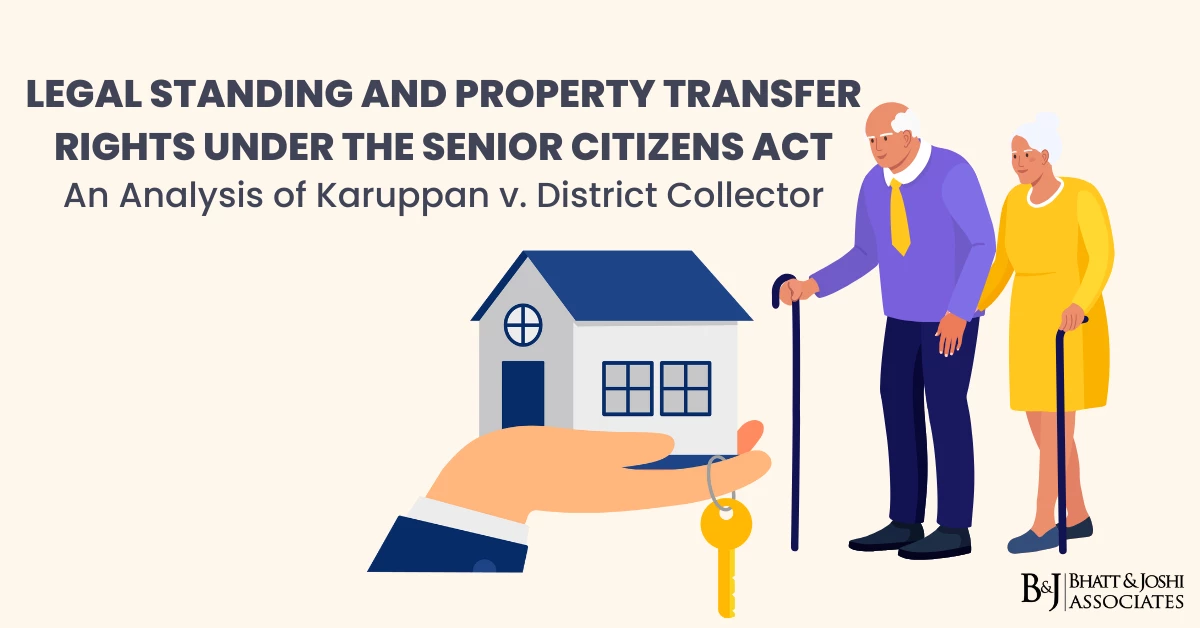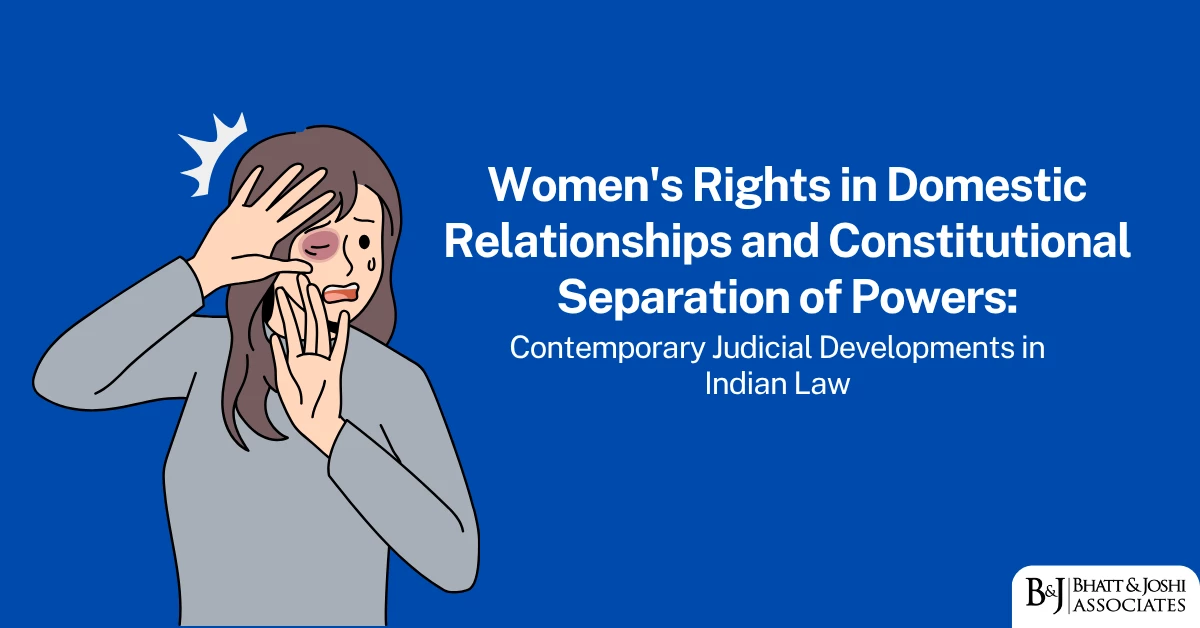Introduction
Terrorism is a global issue that is being demonstrated in various forms. It is a crime against humanity that many organizations and unfortunately some countries thrive on. Hence, the protection of one’s country and its citizen is very crucial for the Government, and to do so we need stringent anti-terrorism laws. The Unlawful Activities Prevention Act, 1967 (UAPA) is one such legislation against terrorism. This Act repealed the older laws like the TADA (Terrorist and Disruptive Activities Prevention Act, 1987) and POTA (Prevention of Terrorism Act, 2002) in 1995 and 2004 respectively. This act gained momentum after the 26/11 attacks.

The Act has specific provisions regarding the definition of terrorist activities and other terminologies. The Act also states the offences and punishments related to terrorism under the Act i.e. Chapter IV and Chapter VI for a terrorist organization. Under the Act, the Central Government has the power to declare any unlawful activity by any individual or a group that incites feelings of disaffection, and disrupts, disclaims, and questions, the territorial integrity, and sovereignty of the country.
Definition of unlawful activities
‘Unlawful activities’ in general terms means any activity which is not in accordance with the law or the procedure established by the legislature.
According to Section 2(1)(o) of the UAPA Act, an “unlawful activity”, means any action taken by individuals or associations which can be done through words, visible representation, or written publications:
- with the intention to cede or cause severance of any part of the territory of India from the Union, either done itself or by inciting any individual or group of individuals to cause such cession or severance;
- which disclaims, questions disrupts or is intended to disrupt the sovereignty and territorial integrity of India; or
- which causes or is intended to cause disaffection against India.
While critically interpreting the definition, it can be seen that clauses (ii) and (iii) of the definition are very vague and open-ended. This offers the government a wide range of power to label any kind of disclaim or questions as incitement as unlawful activities, at the garb of disruption to the government’s sovereignty and territorial integrity. This has already led to prejudice against the essential elements of a democracy i.e. constructive criticism of its Government.
Significance of bail in criminal proceedings
The presumption of innocence is the cardinal rule of the criminal justice system and we can find its roots in Article 21 of the Constitution of India. The Supreme Court in several judgments has stated that “bail is the rule and jail is an exception”. Since the presumption of innocence is attached to all the accused persons and as such, they may be given the opportunity to look after and defend their own cases.
In Sanjay Chandra v. CBI, SC has stated that the accused has a better chance to present his case while he is out on bail in the following words:
“It makes sense to assume that a man on bail has a better chance to prepare or present his case than one remanded in custody. And if public justice is to be promoted, mechanical detention should be demoted.”
Amendments in pertaining to bail UAPA
The act has been amended many times to strengthen its provisions of the Act. due to these amendments, the Act became the primary act to fight “terrorism”.
One of the most important amendments came in the year 2008, wherein two conditions were introduced to grant bail to the accused under this Act. The amendment introduced Section 43D clause 5, which states the following:
43-D. Modified application of certain provisions of the Code.—
(1) Notwithstanding anything contained in the Code or any other law, every offense punishable under this Act shall be deemed to be a cognizable offense within the meaning of clause (c) of Section 2 of the Code, and “cognizable case” as defined in that clause shall be construed accordingly.
(5) Notwithstanding anything contained in the Code, no person accused of an offense punishable under Chapters IV and VI of this Act shall, if in custody, be released on bail or on his own bond unless the Public Prosecutor has been given an opportunity of being heard on the application for such release
Provided that such accused person shall not be released on bail or on his own bond if the Court, on a perusal of the case diary or the report made under Section 173 of the Code is of the opinion that there are reasonable grounds for believing that the accusation against such person is prima facie true. The above preview of section 43 D(5) makes it clear that bail provisions are different from the other special acts. In this Act, the court is required to record the opinion of the court to decide that there are reasonable grounds given for believing that the accusation against such a person is “prima facie” true.
Interpretation of bail provisions under UAPA by various judicial forums
The Act deals with a very serious crime which makes it very important to see at the interpretation of the provision by the judiciary.
In 2019, the landmark judgment passed by the Supreme Court of India in National Investigation Agency v. Zahoor Ahmad Shah Watali, has made pertinent observations in regard to the nature of the burden on the accused and the evidence to be considered in order to reach a prima facie finding of guilt while hearing bail applications. In this judgment, it was seen that having power, the exercise of such power and the conditions to exercise such power are three different things. Grant/denial of bail in terrorism-related offences under UAPA is a power of the designated court. The Supreme Court has, however, released the grant of bail from this comfort by asking the court to “merely” record a finding on the basis of “broad probabilities regarding involvement in the commission of a stated offense or otherwise”.
Landmark Judgements
In Union of India v. K.A. Najeeb, A Supreme Court bench headed by Chief Justice N.V. Ramana upheld the bail granted to the accused by the High Court of Kerala at Ernakulam under UAPA when the accused had undergone incarceration for a significant period even as it recognized that bail under UAPA was an exception.In this judgment, it was also stated that courts are expected to understand the legislative policy against the grant of bail but the rigorousness of such provisions will crumble if there is no chance that the case may reach its resolution in a reasonable amount of time and the time spent in jail has already exceeded a significant part of the sentence. Thus, this type of approach would protect the accused against the possibility of provisions like Section 43-D(5) of the UAPA, which act as the sole standard for denying bail and openly violating the constitutional right to a speedy trial.
Recently, the Bombay High Court in P.V. Varavara Rao v. NIA has reiterated the principles interpreted by the Supreme Court in K.A. Najeeb case in light of the interpretation of Section 43-D(5) of the Act. The court stated the following, that fundamental rights guaranteed to prisoners confined within four walls of prisons under Part III of the Indian Constitution may be insisted upon on the basis of pertinent evidence to demonstrate that, in order to recognize such rights, particularly the one guaranteed under Article 21 of the Indian Constitution, the prison walls would need to be breached, subject, of course, to the imposition of pertinent restrictions. The imposition of conditions would function as a safety net to guarantee that the defendant/accused is forced to appear in court for the trial.
The Supreme Court in K.A. Najeeb, has categorically held in the context of sufferings of undertrials where the proceedings before the trial court take years to be completed, that the rigors of provisions pertaining to the grant of bail found in special statutes like the UAPA will melt down where there is no likelihood of the trial being completed within a reasonable time. Therefore, such a position of law is now well recognized and it can be relied upon where on facts, the court comes to a conclusion that continued imprisonment of an accused like the undertrial in the present case, would violate his right under Article 21, considering the health condition of such an accused. In the present case also, the respondents have stated that at least 200 witnesses will be examined by the prosecution and the chargesheet itself runs into 1000 pages. The charge is not framed yet, and consequently, the trial is yet to commence, even after the trial starts, it may take a long time to complete since the prosecution intends to examine all the witnesses.
The recent judgment on Section 43-D(5) by the Supreme Court in Zahoor Ahmad Shah Watali stated two particular observations that support such a conclusion. Firstly Section 43-D(5) is on lighter footing when compared with other special Acts and secondly, there is no need to go into the merits and demerits of the case at the stage of bail.
Further, the Bombay High Court in P.V. Varavara Rao has made it clear that imprisonment of the accused while under trial in a case where the trial is not going to take place any soon, will be considered as a violation of the right guaranteed to him under Article 21. Thus in respect of the above position of law, it is well settled that there is no prohibition to grant bail under the provisions of the Act and if the accused meets the criteria as mentioned in the above judgment in detail, he is entitled to grant bail under the Act.
Applicability of Section 167(2) of CrPC 1973 pertaining to offenses under the UAPA Act
Apart from the above-mentioned provisions of regular and anticipatory bail, Section 167(2)(a) of the CrPC, grants the accused the right to be released on bail when the investigation has not been completed within 90 days in case of offenses punishable with death/life imprisonment or imprisonment for a term not less than 10 years, and 60 days in case of other offenses.
However, under the UAPA 1967 Section 43-D(2) of the Act operates a special provision distinguishing the applicability of rights granted under Section 167(2)(a) of the Code.
The section states that the Act shall make it clear that the benefit of default bail shall be available to the accused person for the offenses committed under the Act for where the investigation has not been completed within 90 days of the arrest of the accused irrespective of the punishment of the alleged offenses committed by him. However, it is important to note that the provision also gives the right to the agencies the to ask for further extension in the time for a period of 180 days by filing a report of the Public Prosecutor indicating the progress of the investigation along with specific reasons for detention.
The Supreme Court in Bikramjit Singh v. State of Punjab has made important observations in regard to the interpretation of the grant of default bail to a person accused of commission of offenses under the Act:
The court stated that the provision under the section is fair to both the side, the accused as well as the agency investigating the case. since it tries to balance the rights of the accused as well as the duties of the agency to investigate. Therefore the interpretation of the section is extremely important for maintaining the balance of the right to grant bail to the accused and on the other hand, the investigation authorities also have the right to seek the extension by stating the valid grounds. Recently Karnataka High Court in Muzammil Pasha v. The National Investigation Agency has clarified the position of the law aspect and has stated that extending the period for an investigation without hearing the accused person under the provisions of Section 43-D(2) is a gross violation of natural. The High Court has further stated that even if chargesheet has been filed within the extended period of investigation, the accused cannot be deprived of his right to be released on statutory bail, as the same is a right established by the procedure of law and is hence covered under the ambit of Article 21 of the Indian Constitution. The court has also made it clear in the judgment that, the State has an obligation to follow fair, just, and reasonable procedure prior to depriving any person of this right guaranteed under Article 21.
Conclusion
Therefore it is imperative that the above provisions are interpreted in the light of principles of natural justice and in a fair reasonable and just manner so that an accused is not deprived of his statutory rights in contravention of procedure established by law, which in turn is violative of the letter and spirit under Article 21 of the Indian Constitution. In light of the aforementioned provisions and judgments, it is safe to assume that the stringent bail provisions of the Unlawful Activities Prevention Act, 1967, cannot under any circumstances be interpreted as a prohibition on the grant of bail or a measure the imprisonment of an individuals who are awaiting trial in circumstances where the trial may not begin soon. It is also obvious that the prosecution has the burden of establishing guilt beyond a reasonable doubt in situations involving the UAPA, which they must do on the basis of high probabilities.Additionally, under the Act, the accused is also entitled to statutory or default bail, subject to specific adjustments, and they cannot be denied this privilege.Thus it may not be wrong to say out of all the special Acts, UAPA Act, 1967 is an exception wherein higher burden lies on the prosecution to establish the prima facie guilt of the accused.
Written By. Maharshi Shukla











